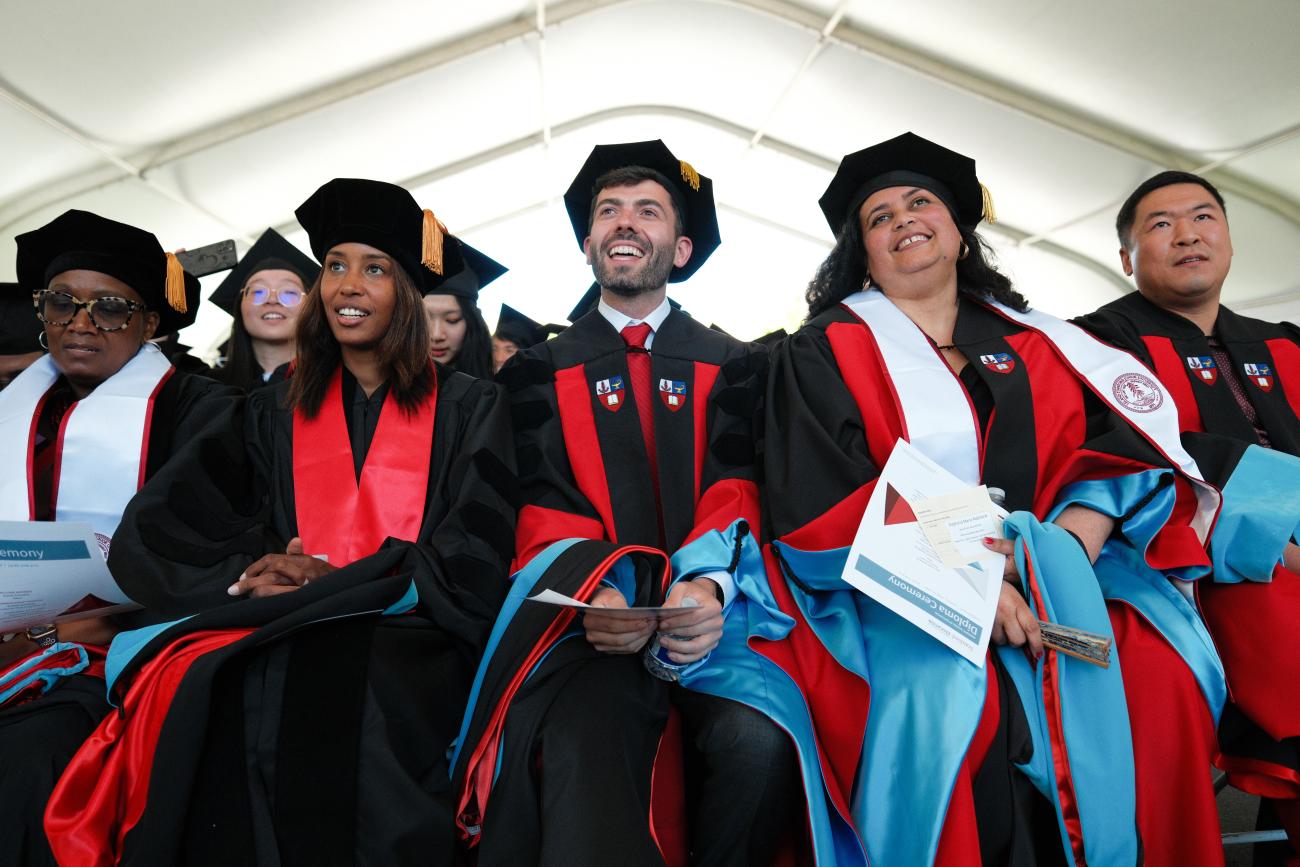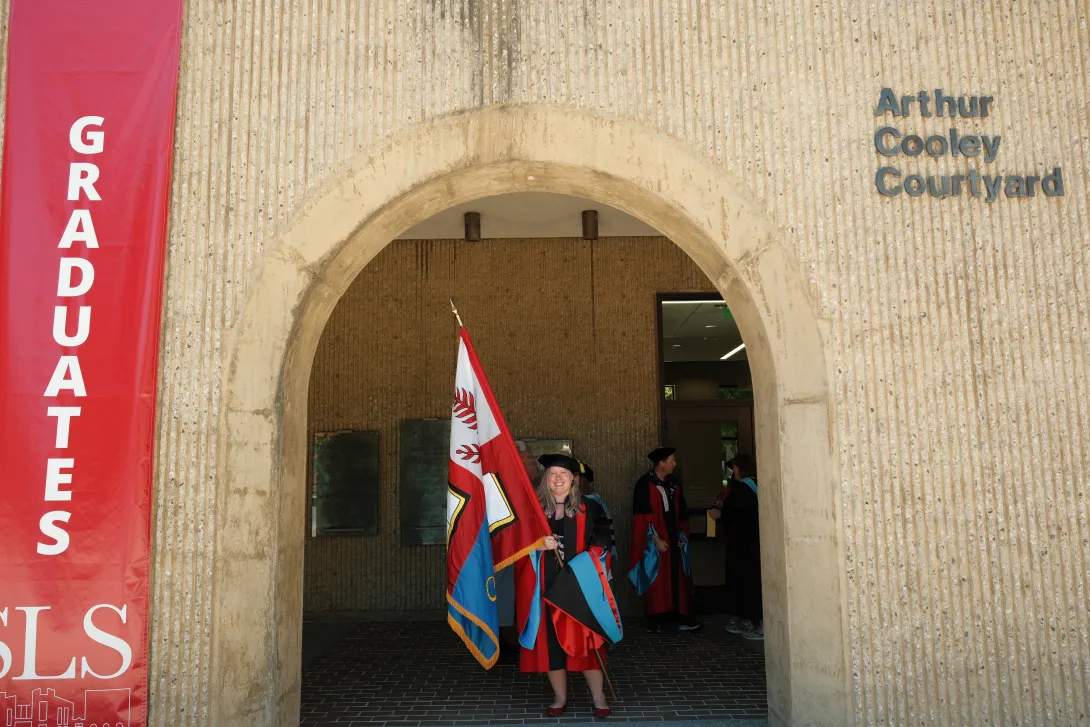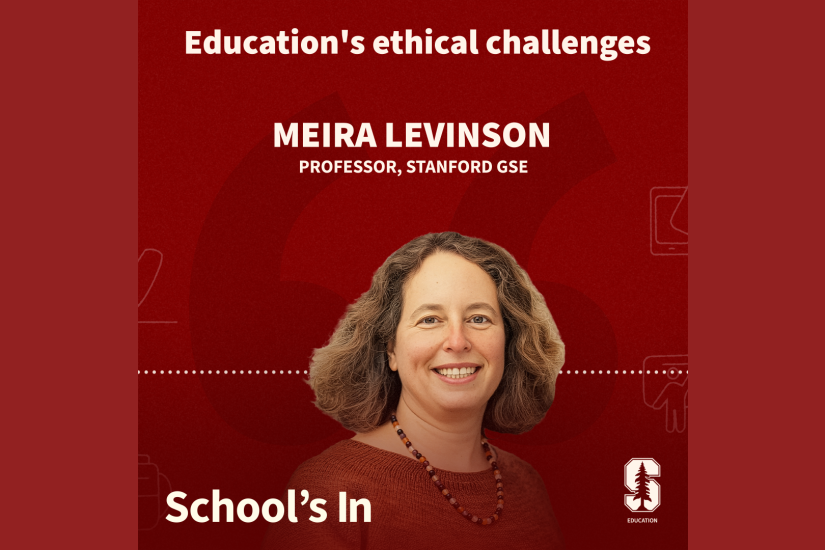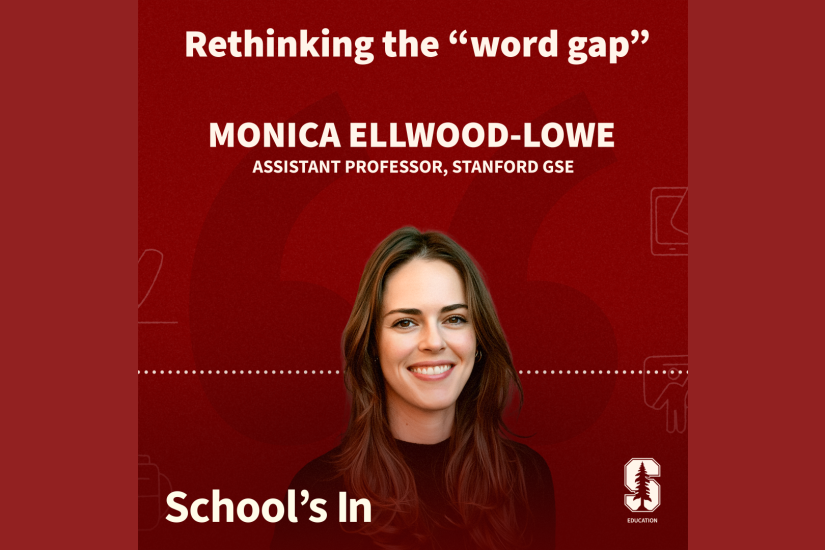
GSE’s class of 2023 to shape the future of education armed with knowledge, compassion
With dissertations defended, keyboards cooled, and tassels turned, Stanford Graduate School of Education’s (GSE) class of 2023 congregated beneath a tent at Canfield Court on Sunday, June 18, to celebrate and say goodbye to what was perhaps the most important resource gained in their time on the Farm — the people.
For Kaylee Tuggle Matheny, PhD ’23, this year’s flag bearer and the first in her family to graduate high school, the peers she’s met and worked with over the past six years will be what she treasures most.
“Having good colleagues is one of the most important parts of career success, and at the GSE I met wonderful people who will be friends I have for the rest of my life,” said Tuggle Matheny, who will go on to work as a postdoctoral scholar in the Poverty and Inequality Research Lab at John Hopkins University before starting as an assistant professor in public policy at Georgetown University in the fall.
“I truly am so grateful, and I feel like I won the lottery,” she said.
As someone who grew up in a low-income household, she says that she plans on using this gratitude to fuel future research that will help students coming from backgrounds like hers achieve educational and economic mobility.
“Teaching is a people business, perhaps the best people business there is,” Dean Dan Schwartz said in a stirring address to students and their loved ones. “It is not just imparting knowledge — it is providing care, empathy, and participation in a community that you help to create.”

Kaylee Tuggle Matheny, PhD ’23, was this year's flag bearer. (Photo: Ryan Zhang)
Engaging in empathy work
While the 2023 cohort has most certainly put in the academic work required to contribute to the betterment of education, Professor Emerita Shelley Goldman — who delivered the commencement address — challenged graduates to engage in “empathy work” moving forward.
“Empathy work can help us see where people are rubbing up against the stressors and constraints of the system and help to catalyze change for and around them,” she said. “When people learn to act from a place of empathy, they become even more motivated, considerate, and most of all, committed to those they are trying to help.”
She adds that empathy in action can help create conditions that make change possible.
“The best quality of empathy work is that you can start small, like creating change for one person you work with every day and have an important impact,” Goldman said. “I am convinced that whether you have three hours, three days, or three months, empathy-based work can help you to focus on and accomplish change in your classrooms, schools, and companies.”
“When people learn to act from a place of empathy, they become even more motivated, considerate, and most of all, committed to those they are trying to help.” — Professor Emerita Shelley Goldman
A powerful force in the world
This year, the GSE conferred 35 doctoral degrees and 151 master’s degrees in programs ranging from international education and teacher preparation to policy and leadership studies, as well as joint degrees with business, law and public administration. Thirty-one Stanford undergraduates also were recognized at a ceremony on Friday for completing a minor in education or honor's thesis.
The first cohort of the GSE’s master’s in Education Data Science (EDS) program also graduated this year, which included 14 students, some of whom will go on to continue their learning at social research labs and PhD programs, while others have accepted jobs in schools and education technology firms.
“Graduation was the culmination of a lot of hard work and opportunities I never thought I’d have," said Tuggle Matheny. “From my time before Stanford teaching 10th-grade English at the high school I graduated from until now, I am committed to giving back to the communities that supported me. I’m grateful to Stanford for growing my village.”
Concluding her address, Goldman encouraged graduates that in the often complex world of education, the simple combination of knowledge, gratitude and empathy has the power to indelibly shape the future of education.
“Today, I urge you to apply all that you have learned through your time at Stanford,” Goldman charged graduates. “Regularly express your gratitude as an act of self-care. Then activate empathy by bringing your head, your awareness and power in the situation, and your heart. You will be a powerful force in the world.”
Faculty mentioned in this article: Dan Schwartz , Shelley Goldman



